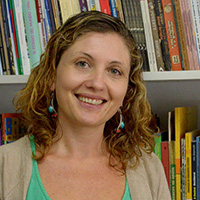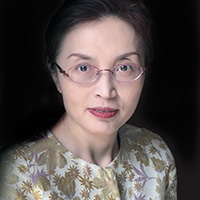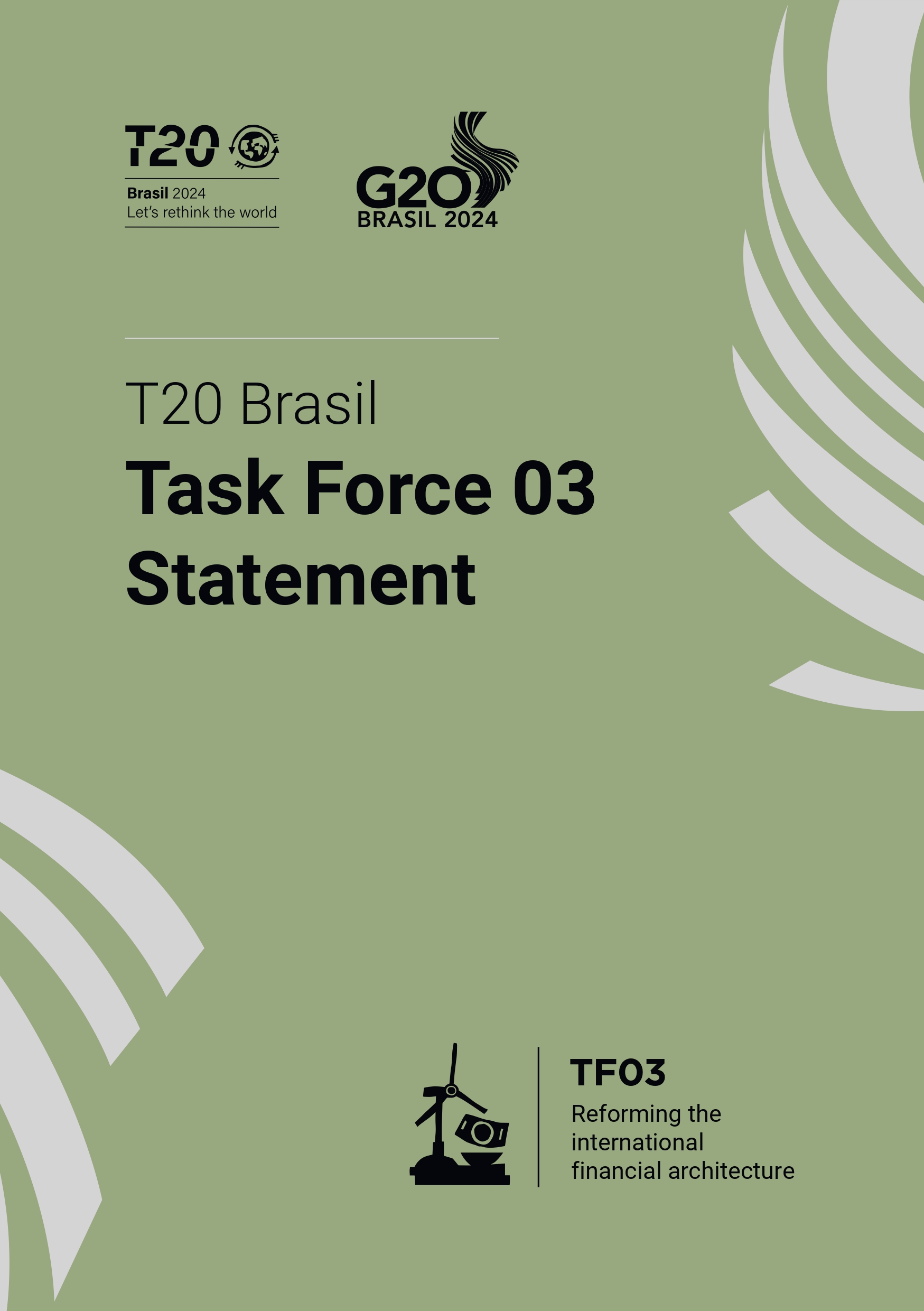
TF03
Reforming the international financial architecture
TF03 focuses on crucial aspects within the realm of global finance institutions' capacity to galvanize much needed resources to achieve the Sustainable Development Goals. The recommendations put forward by this TF intends to support the work of the International Finance Architecture Working Group, the Sustainable Finance Working Group, and the Framework Working Group of the Finance track. It can also contribute to the discussion on inequality among countries in the context of the priorities of the Development Working Group in the Sherpa track. It will tackle a range of pressing issues, including.
This TF tackles several critical issues through these subtopics, contributing to accelerate progress towards multiple SDGs:
3.1. Financial system rules and regulations and global finance safety nets to promote stability, sustainability, and equity: Emphasizing rules and regulations within the financial system to enhance stability, sustainability, and equity on a global scale. This involves establishing effective safety nets to safeguard against financial instability, particularly for developing countries, with a focus on the least developed countries (SDGs 10, and 17).
- Gülbin Sahinbeyoglu, TEPAV - The Economic Policy Research of Turkey, Research of Turkey (Türkiye)
- Maria Antonieta Del Tedesco Lins, IRI-USP - International Relations Institute, São Paulo University (Brazil)
- Marina Zucker Marques, Global Development Policy Center, Boston University (United States)
3.2. Multilateral Development Bank (MDB) reform: what better, bigger and more effective entails?Delving into the requirements for more efficient, expansive, and impactful reforms within these institutions, ensuring they had better serve the evolving needs of developing nations to achieve the SDGs (SDG 17).
- Ernani Torres Filho, IE-UFRJ - Institute of Economics, Federal University of Rio de Janeiro (Brazil)
- Artem Levenkov, EFSD - Eurasian Fund for Stabilization and Development (Regional)
- Priyadarshi Dash, RIS - Research and Information System for Developing Countries (India)
3.3. Addressing debt burden of developing countries and facilitating their access to concessional resources: Addressing the heavy debt burdens faced by developing countries, the task force will put forward innovative ideas regarding sovereign debt renegotiation and facilitate access to concessional resources, crucial for sustainable development (SDGs 10, and 17).
- Ulrich Volz, SOAS - School of Oriental and African Studies University of London (United Kingdom)
- Pablo Nemiña, CONICET - National Council for Scientifical and Technical Research, UNSAM - San Martín National University, and FLACSO - Latin American Forum on Social Science (Argentina)
- Daniel Bradlow, American University and University of Pretoria (South Africa)
- Martin Kessler, FINDEVLAB - Finance for Development Lab (France)
3.4. Ensuring a fairer global tax architecture that facilitates domestic and international resource mobilization: The task force will discuss and propose pathways for a fairer global tax system with potential to not only galvanize domestic and international resource mobilization, but also tackle the challenges posed by digitalization, profit shifts and tax evasion, while enhancing tax transparency. It should also address the issue of the voice and participation of developing countries in global international tax architecture (SDGs 10, and 17).
- Iyabo Masha, G-24 - Intergovernmental Group of Twenty-Four on International Monetary Affairs and Development (Global)
- Abdul Muheet Chowdhary, South Centre (Global)
- Miguel Otero, Elcano Royal Institute and IE School of Global and Public Affairs (Spain)
3.5. Overall SDG financing needs: pathways and the role of the reform of the international finance architecture: Outlining pathways to fulfill overall SDGs financing requirements. This includes exploring how the reform of international financial structures contributes to achieving these goals (SDGs 10, and 17).
- Amar Bhattacharya, Brookings Institution (United States)
- Nilanjan Ghosh, ORF - Observer Research Foundation (India)
- Fernanda Feil, FINDE-UFF - Financialization and Development Research Group, Fluminense Federal University (Brazil)
By addressing these critical subtopics, the T20 Brasil TF03 endeavors to propose comprehensive strategies that align with broader global development objectives while fostering a more resilient and equitable international financial architecture.
Click here to access TF03's LinkedIn community: https://www.linkedin.com/groups/12950095/
LEAD CO-CHAIRS

Ana Saggioro Garcia
Researcher-Professor, BRICS Policy Center & UFRRJ

Haihong Gao
Professor and Director, Research Center for International Finance, Institute of World Economics and Politics (IWEP), Chinese Academy of Social Sciences (CASS)
DEPUTY LEAD CO-CHAIR

Lucas Carames
Researcher, BRICS Policy Center

Wanting Xiong
Assistant Researcher, Institute of World Economics and Politics (IWEP), Chinese Academy of Social Sciences (CASS)
TASK FORCE STATEMENT
